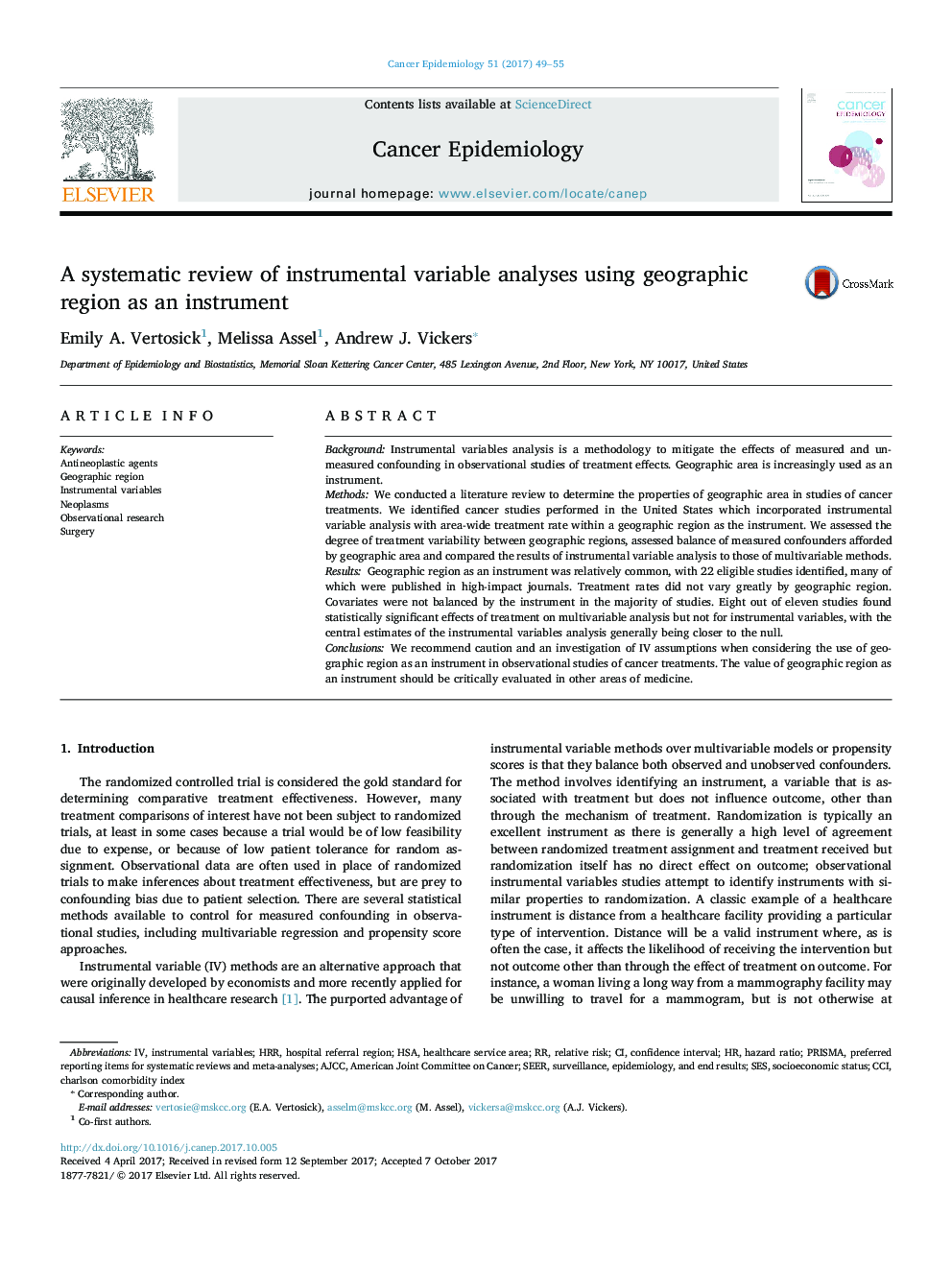| Article ID | Journal | Published Year | Pages | File Type |
|---|---|---|---|---|
| 5524740 | Cancer Epidemiology | 2017 | 7 Pages |
â¢First review of the use of geographic region in instrumental variables analysis.â¢The association between treatment and geographic region was weak.â¢Covariates were unbalanced across geographic regions.â¢Geographic region is not an appropriate instrument in cancer studies.â¢Use caution with geographic region as an instrument in cancer studies.
BackgroundInstrumental variables analysis is a methodology to mitigate the effects of measured and unmeasured confounding in observational studies of treatment effects. Geographic area is increasingly used as an instrument.MethodsWe conducted a literature review to determine the properties of geographic area in studies of cancer treatments. We identified cancer studies performed in the United States which incorporated instrumental variable analysis with area-wide treatment rate within a geographic region as the instrument. We assessed the degree of treatment variability between geographic regions, assessed balance of measured confounders afforded by geographic area and compared the results of instrumental variable analysis to those of multivariable methods.ResultsGeographic region as an instrument was relatively common, with 22 eligible studies identified, many of which were published in high-impact journals. Treatment rates did not vary greatly by geographic region. Covariates were not balanced by the instrument in the majority of studies. Eight out of eleven studies found statistically significant effects of treatment on multivariable analysis but not for instrumental variables, with the central estimates of the instrumental variables analysis generally being closer to the null.ConclusionsWe recommend caution and an investigation of IV assumptions when considering the use of geographic region as an instrument in observational studies of cancer treatments. The value of geographic region as an instrument should be critically evaluated in other areas of medicine.
